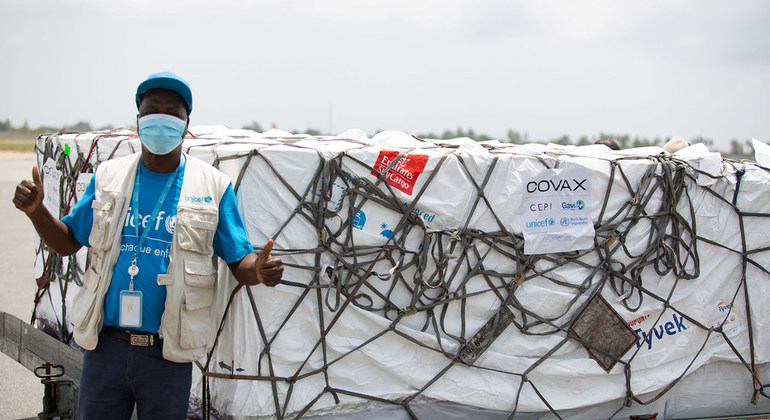The delivery of AstraZeneca/Oxford jabs, following the first historic shipment to Ghana earlier this week, showcases an unprecedented international parternship to provide at least two billion doses of coronavirus shots by the end of this year.
The vaccine doses were shipped by UNICEF from the Indian metropolis of Mumbai, via its regional supply centre, Dubai, to Côte d’Ivoire’s capital, Abidjan, as part of the first wave of vaccines headed to several low and middle income countries.
Equitable shots
“Today is an important first step towards achieving our shared vision of vaccine equity, but it is only the beginning”, said Jean-Marie Vianney Yameogo, the WHO Representative in Côte d’Ivoire, adding that “we are proud that Côte d’Ivoire is among the first countries in Africa to receive the AstraZeneca/Oxford vaccine through the COVAX Facility.”
As the COVID-19 global pandemic has claimed hundreds of thousands of lives and disrupted billions more, Mr. Yameogo stressed the importance of reducing deaths and bringing the pandemic under control. The vaccine will also help prevent estimated monthly losses of around $375 billion to the global economy.
“Global and equitable access to a vaccine, which will protect health workers and those at greatest risk of contracting the disease in particular, is the only way to mitigate the impact of the pandemic on public health and the economy,” underscored Mr. Yameogo.
Moving forward
Meanwhile, UNICEF and its partners are working together to help more countries prepare for the COVID-19 vaccine rollout.
“Vaccines save lives. As health workers and other front-line staff are vaccinated, we will see a gradual return to normality… especially for children”, said Marc Vincent, the UNICEF Representative in Côte d’Ivoire.
“In the spirit of universal health coverage, we must leave no one behind”, he stressed.



